|
"Bring me my sword.
"
—Dr. Hans Rosling
Top–of–the–List Thinking from Edd and Alistair
A great link from Alasdair Allan about real-time interaction tracking for iPad apps set me thinking about the future of software usability. How long will it be before somebody figures out how to enable the front camera to do eye–tracking as well?
Pretty soon, our devices will be able to measure not just our interactions with them, but also our emotional responses. You can bet there’s a robot somewhere just about ready to do this.

But where does this take us? I’m somewhat wary of a world filled with sycophantic devices, cocky in their assurance that they can know me through measurement. In one episode of Buffy the Vampire Slayer—stay with me—a guy builds his perfect robot girlfriend, only to find he can’t love somebody programmed to be perfect for him.
I think the next step is personality. When we theme the iPads of our future, we’ll be selecting temperament as much as UI. (I know already I’ll be heading for the “wry, sarcastic” theme.)
Perhaps Iain M. Banks has it right in his Culture books. The drones and Minds are a very plausible rendition of the direction user interface is taking us.
When you read your iPad, will your iPad read you?
Cheers,
Edd Dumbill & Alistair Croll
Chairs, Strata
Strata Conference
Less Than Four Weeks Away
Making Data Work
February 28 – March 1, 2012 | Santa Clara, CA

Use code NEWS20 and save 20%.
Tracks include: Data Science, Business & Industry, Visualization & Interface, Hadoop & Big Data, Policy & Privacy, and Domain Data.

Quick Bytes
Short Items of Massive Interest
Not Smart or Rich—or alas, even Pretty
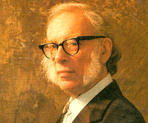
You know that big data has come firmly into the mainstream when Fast Company allows an “expert blogger” Daniel Rasmus to write deeply on the subject while name–checking Isaac Asimov and exploring it as an existential phenomenon. He writes, “As Big Data becomes the next great savior of business and humanity, we need to remain skeptical of its promises as well as its applications and aspirations.”
Complexity Itself
Author Allen Downey can’t really wait for the March release of his new title, Think Complexity, so he’s releasing it bit by bit online. The book focuses on data and structure, Python programming, computational modeling, and nothing less than the very philosophy of science itself. In fact, he writes, “I think complexity is a ‘new kind of science’ not because it applies the tools of science to a new subject, but because it uses different tools, allows different kinds of work, and ultimately changes what we mean by ‘science.'” As Downey himself admits, he’s Probably Overthinking It.
Chaos Theories
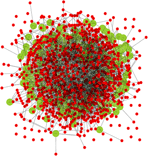
“The heart of data science is designing instruments to turn signals from the real world into actionable information,” says Jetpac CTO Pete Warden. “Fighting the data providers to give you those signals in a convenient form is a losing battle, so the key to success is getting comfortable with messy requirements and chaotic inputs. As an engineer, this can feel like a deal with the devil, as you have to accept error and uncertainty in your results. But the alternative is no results at all.” In this conversation with Audrey Watters, Warden outlines different ways to embrace the chaos of raw data. Bonus? A great infographic.
Letter from Davos
Based in Switzerland last month, New York Times blogger Nick Bilton reports on what he terms the Davos Data Deluge, in a terrific piece from the Bits blog. EU countries are seemingly more concerned with the use of personal data than is the US, and the world economic forum released its Big Data, Big Impact report warning of dire consequences if data is misappropriated and compromised. Bilton writes: “As the World Economic Forum report says: ‘Concerted action is needed by governments, development organizations and companies to ensure that this data helps the individuals and communities who create it.'”
Data Docking
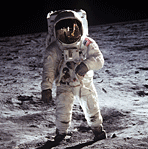
On July 20, 1969, the Apollo 11 spacecraft landed on the moon, making history and creating heros of the astronauts aboard. On January 9, 2012, that story was retold, animated solely by data.
Stats R Sexy
Edd recently helped to judge a unique contest, one that challenged entrants to create applications for R in business. Strangely, the top two were both concerned with air travel; the rest of them travel far and wide. It’s always fun to take a peek at how others approach cash-prize problems.
Hadoop Huzzah
Last week, we announced that Hadoop World would become part of the Strata NYC conference slated for this autumn. That doesn’t stop us from exploring all things cloud–based in Santa Clara this month. In fact, we have tracks on the Future of Hadoop, Hadoop and Big Data tracks, and Hadoop and Big Data applied sessions. Come join us up in the aerie!
Visionaries
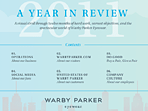
Producing nerd–tastic glasses that mimic the pocket-protector beauty of 1950s geekdom with their thick black frames and blocky forms is Warby Parker’s specialty. The retro look, however, is the only old–fashioned thing about this forward–looking company. They donate one pair of glasses to a needy person for every pair purchased by a fortunate person and customers have the luxury of trying on five pair at home at a time. They’re doing everything they can to be transparent to their customers and stake–holders, and to that end have created an infographic that allows anyone to peek at any aspect of their 2011 fiscal year, something we find both brave and beautiful.
Talking It Out
Informative Blather
Conf Confidential
Not everyone who wants to attend Strata will be able to, so we have a nice slate of free live webcasts planned for February that anyone can watch and learn from.
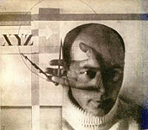
On Feb. 10 at 10amPST, digital business analyst Kord Davis presents on The Ethics of Big Data: Value Personas in Practice. Davis explains: “Value Personas offer an organization a means of capturing a common set of values which can be used to encourage organizational alignment, acceptable business practices and individual behaviors based on a common set of values. They help to identify shared values and create a vocabulary for explicit dialog, thereby reducing risk from misalignment and encouraging collaboration and innovation across working teams.”
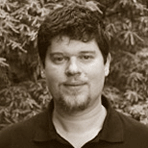
On Feb. 17 at 10amPST, 10gen director of product marketing Jared Rosoff gives an hour–long tutorial titled, MongoDB Schema Design: How to Think Non-Relational. The normal rules don’t apply to MongoDB, Rosoff says, adding: “The simple fact that documents can represent rich, schema–free data structures means that we have a lot of viable alternatives to the standard, normalized, relational model. Not only that, MongoDB has several unique features, such as atomic updates and indexed array keys, that greatly influence the kinds of schemas that make sense.”
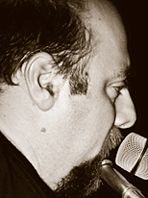
And on Feb. 21 at 10amPST, scientist Maksim Tsvetovat leads a discussion on Analyzing Social Media Response to Elections. Tsvetovat promises, “In this webcast, I will present a simplified methodology that one could use as a jumping-off point to automated discourse analysis at scale—and apply to real-time data streams coming from electoral politics of the 2012 Republican primary.” Sounds like one we won’t want to miss.
Archived and Quantified
On Jan. 25, we hosted the Strata Santa Clara Preview – Towards the Quantified Society – as a free online conference. If you missed it, each of the disparate sessions by
John Wilbanks, Bitsy Bentley, Edd and Alistair, Paul Dix, and Noah Illinsky are patiently archived for your rare free moment.
Wot Is the Wat
Just Trust Us: Gary Bernhardt’s CodeMash 2012 lightning talk is hilarious.
The Final Bit
Our weekly cherry topper
Dr. Rosling’s Fact-Based World
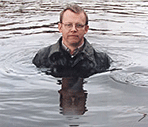
Dr. Hans Rosling uses LEGO blocks and IKEA boxes to explain the world. He employs the specter of a washing machine to mark global dips below and above poverty. A TED favorite, he also happens to enjoy swallowing swords. With his Gapminder foundation, Rosling aims to “replace devastating myths with a fact-based worldview.” Gapminder’s mission statement continues: “Our method is to make data easy to understand. We are dedicated to innovate and spread new methods to make global development understandable, free of charge, without advertising. We want to let teachers, journalists and everyone else continue to freely use our tools, videos and presentations.” Gapminder is always glad for donations, but you can enjoy the collective wisdom there free of charge.
Looking for more? Visit oreilly.com/data.
|
Share this newsletter:
|


|
|




















